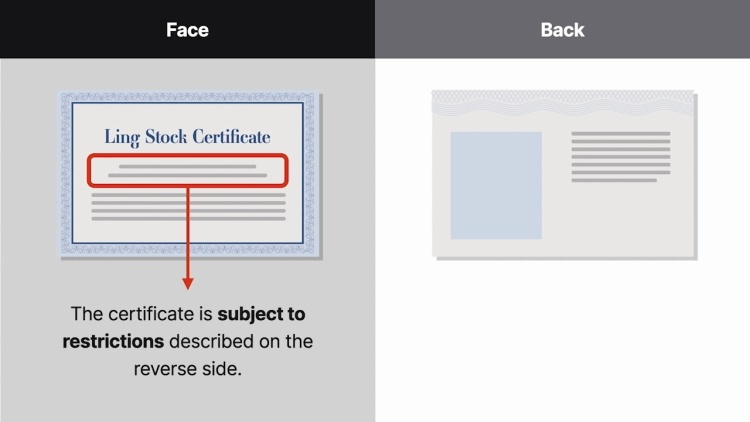Ling and Co. v. Trinity Sav. And Loan Ass'n
Texas Supreme Court
482 S.W.2d 841 (1972)
- Written by Mary Pfotenhauer, JD
Facts
Bruce Bowman (defendant) owed money on a promissory note to Trinity Savings and Loan Association (plaintiff). Bowman pledged a certificate for 1,500 shares of common stock in Ling & Company, Inc. (defendant) to secure payment on the note. Ling was formerly a brokerage house member of the New York Stock Exchange. Trinity brought suit against Bowman to collect on the balance owed on the promissory note, and to foreclose on the stock certificate pledged as security. Ling objected to the foreclosure and public sale of the stock based on restrictions on transferring stock set out in Ling’s articles of incorporation. The articles require a stockholder to obtain written approval from the New York Stock Exchange, and to give the corporation and other stockholders an opportunity to purchase, prior to selling or encumbering the stock. No offer of sale was made to other stockholders, and Bowman’s pledge of stock was not approved by the New York Stock Exchange. Bowman’s stock certificate refers on its face to restrictions that are described on its reverse side. On the certificate’s reverse side, it refers to the provisions in the articles of incorporation that restrict any transfer or encumbrance without first offering an option to purchase the shares to the corporation and other stockholders. Trinity claimed that the restrictions on the transfer of stock contained in Ling’s articles are invalid. The trial court granted summary judgment for Trinity, foreclosed the security interest in the stock, and ordered the stock sold. The court of appeals affirmed, holding that the restrictions included in Ling’s articles were invalid because there was no conspicuous notice of them on the stock certificate, and because the restrictions on stock transfer were unreasonable.
Rule of Law
Issue
Holding and Reasoning (Reavley, J.)
What to do next…
Here's why 907,000 law students have relied on our case briefs:
- Written by law professors and practitioners, not other law students. 47,100 briefs, keyed to 996 casebooks. Top-notch customer support.
- The right amount of information, includes the facts, issues, rule of law, holding and reasoning, and any concurrences and dissents.
- Access in your classes, works on your mobile and tablet. Massive library of related video lessons and high quality multiple-choice questions.
- Easy to use, uniform format for every case brief. Written in plain English, not in legalese. Our briefs summarize and simplify; they don’t just repeat the court’s language.





